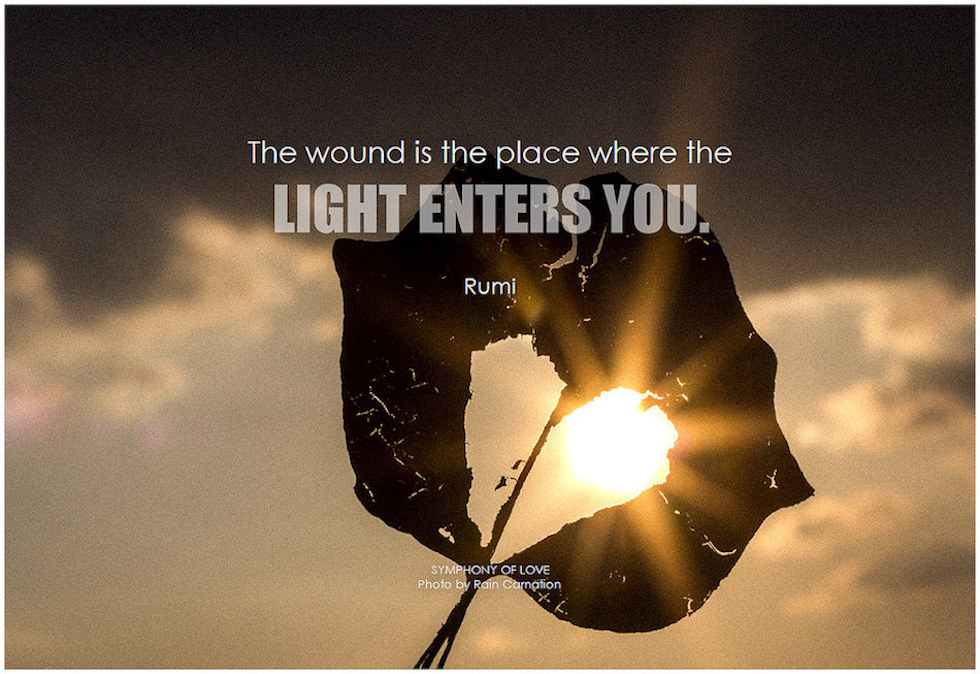
With the demands of modern-day living continuing to escalate, the self-help industry has never seen greater growth – people are searching and striving relentlessly to find answers that will deliver health, wealth and prosperity.
The typical methodology of self-help approaches is centered on identifying a better state – an ideal destination that we have yet to reach and thus we strive towards it. For example, losing 10kg in 10 weeks. “Yet” is the key in these approaches: the simple formula is to put a stake in the ground beyond us, strive towards it, reach the stake, replant the stake and continue. The separation between the present and the future ideal state is what fuels
the trek towards this destination, right?
There is a dark side to such an approach. For this formula to work, we have to reject our present state of affairs, otherwise there is no separation. No separation equals no motivation and no will to change. Well, here is a societal indication of a crack in the armour.
Embracing vulnerability
What’s wrong with our current state of affairs? What’s wrong with “not being perfect”? Mindfulness is transformational because it turns this traditional self-help formula on its head. There is no ideal or perfect state. Whatever and wherever we are is, well, where we are. If we are imperfect, feeling raw and wounded, that’s what’s going on right now. Mindfulness is premised on accepting things as they are instead of denying and resisting them; being
in full engagement with our present state versus fixating our attention on something that is yet to be. When we accept, our views change, new options arise and there is space to manoeuvre. When we deny and reject, the world looks a whole lot smaller and restrictive.
Recently, while facilitating a mindfulness session, there was a “tough” question posed by a participant and I totally messed up my response by essentially
sweeping the question under the carpet despite its gravity. I was frankly disrespectful. During the next period of silent meditation, I could feel the tension rise in me having realized what had happened. I had two choices: should I come back and acknowledge how I was feeling and address it, or just let it slide? The prospect of either option felt uncomfortable, but I consciously decided to simply be honest with the group. After the silent practice I addressed the matter upfront. It felt terribly awkward and it wasn’t a fairy tale ending. But it was honest and somehow it landed for me.
This was a tremendous lesson for me both as a teacher and student of mindfulness. To take the easy way out is like a temporary band aid. To be vulnerable and face up to what is true is when the light comes in, and that’s the best self-help we can give ourselves.
To join or find out more about our mindfulness programs, visit MBSR.